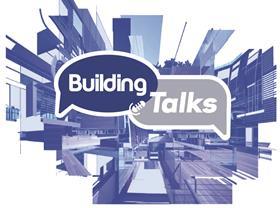Is it gloom all round now people are back to Zoom meetings in pyjama bottoms?
This is not the Christmas present anyone wanted. As the end of the year approaches, we could have done without the prime ministerŌĆÖs warning of a ŌĆ£tidal waveŌĆØ of Omicron infection sweeping the country and the introduction of restrictions to protect the NHS from being overwhelmed.

Since the previous working from home guidance was lifted in July, many construction professionals had got rather used to spending at least part of the week in the office, and firms say it has been hugely positive for their businesses and staff. So, is it gloom all round now people are back to Zoom meetings in pyjama bottoms?
There were a range of reactions from the people we spoke to this week. In the short term the feeling is there will not be a huge impact on their teamsŌĆÖ productivity. We have been here before, bosses have told us; we know the drill and the work will get done before staff can finally log off for whatever festive celebrations are possible.
Of course, Boris Johnson is hoping he can buy a few weeks (for himself and for the country) while the booster programme gets a boost, and if successful he should be able to ditch Plan B and we can get on with our lives.
That would relegate this latest scare to the status of a temporary blip, annoying but manageable. And those companies that design and build offices think in that scenario there would be little damage to the bounce-back they have been experiencing this year.
The resilience of the office market has been one of the surprises of 2021, although consultants and contractors in the know would say the workplace was too readily written off at the height of lockdown. They point to strong demand from investors and developers looking to repurpose existing stock for new ways of working, while the net zero agenda is driving retrofit and high performance in new-builds.
The big companies have proved they have the buying power and supply chain relationships to keep the show on the road
But concern deepens when thoughts turn to January and the possibility of restrictions extending well into 2022. What if it takes longer to deal with this covid variant? That is when employers would start to worry about the mental health of staff, and some in the industry think it could affect decisions around short-term office leases, perhaps prompting a reduction in floorspace if tenants think the uncertainty will be prolonged (see page 8).
And uncertainty is what this is all about. Since spring 2020 our personal and working lives have been rocked by it. Most had thought we were through the worst, but now we might have to factor in the government putting the brakes on parts of the economy in the face of fresh variants.
It is worth taking a moment to look back at what firms have been through. Our top 150 contractors and housebuilders rankings, starting on page 18, are the first to include the pandemic period but the pressures on firms have gone well beyond the pandemic to include supply chain disruption, inflation and labour shortages, to name just a few. Given the unprecedented set of challenges piling up, one conclusion from our league tables is that the state of contractorsŌĆÖ and housebuildersŌĆÖ finances could have been so much worse.
Kier, which is ranked second in the contractor tables, is the big turnaround success in the contracting world ŌĆō having restructured the business and bolstered its balance sheet with a successful equity raise and the sale of its residential arm. Boss Andrew Davies is frank about the tough market conditions, telling ║├╔½Ž╚╔·TV: ŌĆ£Public sector construction has really struggled; there were delays on frameworks but they are largely over now and are coming to fruition.ŌĆØ
In general, he thinks the pandemic has been handled well in this country (even if there are plenty who would disagree with him) and is thankful that construction was one of the fortunate sectors which could largely remain open during the lockdowns.
There are also encouraging vibes in the latest note from analyst Numis. It highlights companiesŌĆÖ ability to deal with supply constraints and so far to offset cost inflation.
That optimism may not cover the entire industry as the report focuses on the listed firms, but nevertheless in a year marked by supply issues the big companies have proved they have the buying power and supply chain relationships to keep the show on the road.
Even better, Numis thinks demand will be strong and trading positive in 2022, particularly for housebuilding, repair and maintenance, and infrastructure ŌĆō the latter it identifies as the key driver for construction, with its ┬Ż650bn pipeline of work over the next decade.
So letŌĆÖs end the year on a positive note by going back to someone who knows how to keep hope in difficult times, KierŌĆÖs Andrew Davies: ŌĆ£IŌĆÖm an eternal optimist; I think weŌĆÖve done the hard yards. You have to believe that the future will be better than the past.ŌĆØ
To all our readers: have a happy Christmas, and letŌĆÖs hope it is a healthy and prosperous new year.
Chlo├½ McCulloch is the editor of ║├╔½Ž╚╔·TV
║├╔½Ž╚╔·TV Talks: Net zero podcast series out now

You can hear interviews recorded at COP26 in the ║├╔½Ž╚╔·TV Talks Net Zero podcast out now. Interviewees include Gregor Craig, Skanska UK chief executive, Hannah Vickers, Mace chief of staff, and Sarah Linnell, engineer at Cundall, who chaired the CLC event at COP26.
>> Click here to find out more and for details of how to subscribe to the series




























